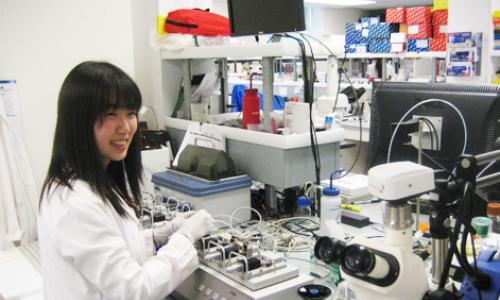
As I get closer to graduation, I think about how much Co-op has changed my life, especially since I'm an introvert. It's not just the projects you work on or the skills you learn; it's a unique journey of making yourself known; of stepping beyond your comfort zone. Through embracing discomfort - that’s where growth happened. Through my four Co-op terms, I learned what really drives me and, more importantly, what doesn't fit my job goals, and it has been the best decision for my career.
Here are some key takeaways from how my co-op experience enhanced my university experience:
Getting an excellent academic background in university is important, but jumping from theory to practice can be challenging. Co-op experience can help close this gap by giving students real-life examples of how to use what they've learned in class. No matter what you're studying—business, tech, the arts—Co-op can help you see how the ideas you're learning in the classroom can be used in the real world. Not only does this help you understand the material better, but it also gives you skills that companies want in today's tough job market.
One great thing about jobs is that they give you the chance to make business contacts. You may meet experienced workers, other students, and maybe even upper-level company leaders during your job. In the future, these relationships can be beneficial as references, teachers, or sources of job advice. Networking is an integral part of building a job, and the connections you make during an internship can lead to chances you wouldn't usually be able to find through school.
Every business has its own style and way of doing things at work. You can get a sneak peek into the day-to-day processes of your chosen field through internships. This will help you understand the standards, rules, and challenges that experts face. This experience significantly influences your job goals and strengthens your professional personality. It enables you to make smart choices about your future job, ensuring that your chosen paths align with your values, hobbies, and goals.
Co-op work terms help people learn new skills. They give you a chance to improve the hard and soft skills you need to succeed in your job. Whether you want to learn how to use industry-specific tools, improve your speaking skills, or get better at fixing problems, Co-op jobs are a great way to learn. The knowledge you gain can be added to your resume, making you a better prospect after graduation. A lot of companies look for real-world experience, and a Co-op experience can be the thing that makes you stand out from other candidates.
Stepping away from the comfort of college and into a work setting can be scary. But it's just this kind of task that helps people grow as professionals. Co-op jobs help you become more independent and able to handle the challenges of the job. Working through problems in the real world as part of a job builds trust in your skills and prepares you for the change from college to work.
Leverage your strengths as an introvert; your qualities are assets in navigating workplace complexities. Being exposed to different job styles makes you more well-rounded.
Actual growth occurs beyond the familiar. Even though I was nervous at first, doing four co-ops has made me more confident and able to change. Take on obstacles; they could lead to the most satisfying times of your school life.















